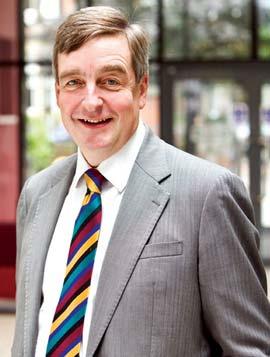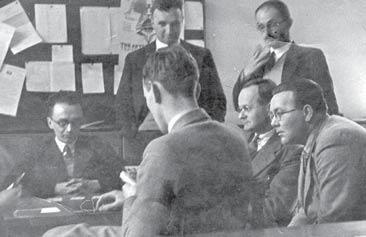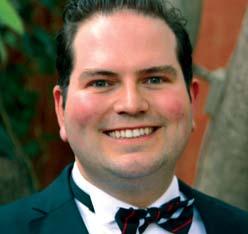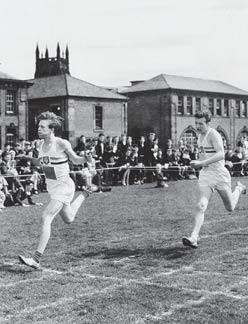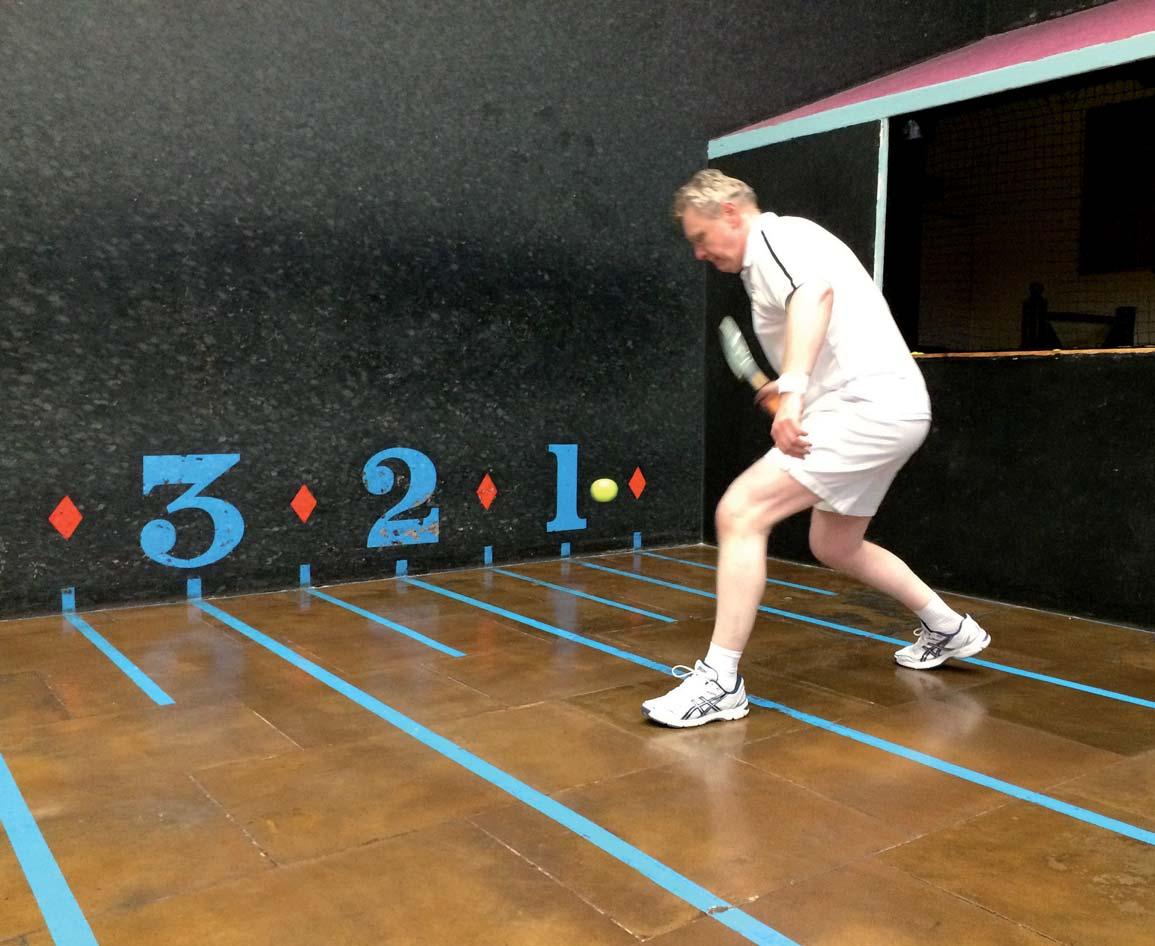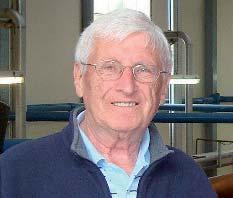
15 minute read
Obituaries
from ONA 96
James ‘Alan’ Wardropper (40-48)
Born 5 November 1929, died 26 July 2015, aged 85
Advertisement
Alan Wardropper, in every way, typical of our school’s best.
Old friend and brightest star of ‘Sammy’ Middlebrook’s (18-58) History Sixth, whose schooldays bridged Penrith and Eskdale terrace, Alan Wardropper died peacefully on the 26 July at the age of 85.
I recall our 1947 train journey at scholarship time when he, Brian Redhead (40-48), John Harrison (40-47) and myself shared a compartment, full of hope and history. In Alan’s case, hope was rewarded, for he would return with an exhibition to Sidney Sussex College, Cambridge.
He was essentially a quiet man, the greatest and most self-effacing I have known; in all matters moderate, though meagre in none. He would later say, “Of all our circle I was the only one who stayed and made a life in the North East”. Very true, for post-war Britain was slow to revive and many looked southwards for employment.
With Alan in Newcastle and others starting life elsewhere, this could mean fading friendships. It is only owing to Nancy’s assistance that I am now able to sketch in the central part of his career. She tells me she received 223 messages and cards on his death and that 120 people attended the celebration of his life; proud numbers, especially if one reflects that most of his contemporaries are by now dead. I am also reminded that he was a deep thinker whose thoughts were often for others. He assisted in a number of charities and was treasurer of several trusts, including the Community Foundation Tyne & Wear and Northumberland.
After nine outstanding terms at Cambridge he came down in 1951, taking articles with Peat, Marwick and Mitchell, becoming a chartered accountant in 1954 and among the firms youngest-ever partners in 1961, finally retiring in 1988. In 1959 he married Nancy Black (formerly of the Central Newcastle High School) and their three children are by now firmly grounded in business and the professions.
They lived much of their lives where Kenton meets Nuns Moor, moving in 2000 to Beadnell. All I have described confirms Alan’s character as steady, steadfast and loyal: to company as well county, society as well as family, in every way typical of our school’s best. Typical even in ending his days living between Alnwick and Berwick, that coast of seals and seabirds, castles, dunes and sands, to which many have returned like salmon to their native streams. There, he and Nancy walked, golfed, bowled, bird-watched, fished, played bridge, read, listened to opera and enjoyed the shy and secret beauty of England’s farthest corner.
It would however be wrong to remember Alan solely for hobbies and pleasures. Even in retreat his life embraced a keen social sympathy, continuing to think of others and to look after many charitable projects. His contribution lay not only in giving time to compassionate causes, but in turning his talent for accountancy towards altruistic ends. A conventional career, one may think, untroubled by upheaval or uncertainty, yet a positive and productive one, underpinned by modesty and virtue.
Death has robbed his family of a loving man and his friends of a lovable man, his business associates of a distinguished colleague and the North East of an unobtrusive, yet irreplaceable presence.
By Derek Williams (39-48)
I first met Richard Manley in the spring of 1978, shortly after I had been appointed head of Economics at Winchester. He had applied for a job in the department and it was immediately apparent that he was different; apart from anything else, he had spent 10 years working in the ‘real world’, mainly for the Economist Intelligence Unit and Coopers & Lybrand, with a good part of the time spent in Saudi Arabia.
He was the first teacher I was involved in appointing – and what a good appointment it was. He was a born schoolmaster, very good and committed in the classroom and particularly strong on the pastoral side outside it, clearly very able, a strong academic but not afraid to admit to areas where he was less happy. (For several years, we swapped sets for particular areas of the syllabus; he hated teaching money (which was a main interest of mine) and I hated teaching distribution theory, where he was strong; so we just swapped sets.) Only three years after he arrived, the position of undermaster, a proto-director of studies, became vacant and he was the obvious person to take the role. Here he showed himself not only to be very efficient but also very clear about many of the weaknesses that Winchester had in the organisation of its teaching. He set about trying to drag Winchester into the 20th Century, with the strong support of a few of us and the strong opposition of many. It is a tribute not only to his ability but also his sense of humour and personal qualities that he managed to get a fair way down the road he had sketched out.
Richard had lived very close to the RGS in Lily Crescent and followed his elder brother, Roger (52-62) into the school in 1954. I know little about his school career, but I suspect that he would have found silly school rules rather difficult to tolerate. He left the RGS in 1964 and went on to Birmingham University to read Economics before going into consultancy. He had a great sense of humour and enjoyed life –particularly good food and good wine. When colleagues had a problem, Richard was the first to offer support, one of the reasons he was so respected in the Common Room.
I left Winchester in 1989, at the same time as Richard became a housemaster, and so I did not see him in his role as a housemaster, though I know that he was hugely committed to the 60 boys in his care. He was also very important to the college as a whole by his exploitation of the far east market. But the life of a boarding school housemaster is one of the most stressful around, and eventually it took its toll on Richard, leading to his early retirement in 1998, though he carried on with some educational consultancy. He and his wife, Anne initially moved to Devon but then went to the south of France, where he lived until his death. We occasionally spoke on the phone and he was keenly interested in what was going on at the RGS; he was particularly pleased about the lease that we took on the county cricket ground in Jesmond, which he thought was a real coup.
His last few years were difficult; his health deteriorated and he was not always easy, but it was the Richard Manley of his prime that was remembered at a memorial service in Winchester in November. The fact that there was standing room only said as much as the moving tributes.
He is survived by Anne, by a daughter (Carrie) and two grandchildren by his first marriage, by a son (Ollie) and two grandchildren from his second marriage, and also by his two step-children by Anne and seven step-grandchildren.
By James Miller (94-08), previous Headmaster
Philip Ashcroft (36-44) born 1926, died 1 November 2015, aged 88.
Robert Brown (48-57) born 1939, died 11 October 2015, aged 76.
Peter Dodds (65-72) born 1954, died 8 November 2015, aged 61.
Ian Dollery (72-82) born 1963, died 18 June 2015, aged 51.
Harry Goldwater (46-53) born 1935, died 24 December 2015, aged 80.
John Kenneth ‘Ken’ Richard Graveney
(34-36) born 1924, died 25 October 2015, aged 90.
Arthur GN Hodkinson DSC VRD (3037) born 1920, died 8 November 2015, aged 95.
Robert I Johnson (30-33) born 1916, died 30 August 2015, aged 99.
Rev Michael Frederick Laybourne (4654) born 1937, died 17 July 2015, aged 77.
Stanley Renwick ‘Ronnie’ Nicholson
(44-47) born 1930, died 22 September 2015, aged 85.
David Tucker (37-42) born 1925, died 31 July 2015, aged 89.
Allan Wilson (36-39) born 1925, died 5 July 2015, aged 89.
Malcolm Wood (60-70) born 1951, died 11 August 2015, aged 63.
Derrick Harold Younger (44-50) born 1931, died 6 November 2015, aged 84.
Born 16 June 1927, died 3 November 2015, aged 88
I always feel diffident claiming Thomas William Graveney, who died on 3 November, aged 88, as the only (so far) ON test cricketer, but the fact is that he was in the Junior School, together with his elder brother John Kenneth ‘Ken’ Richard Graveney (34-36).
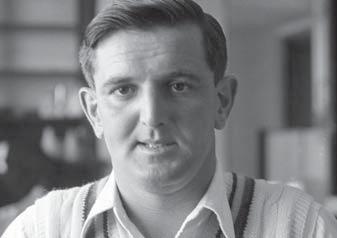
Tom was a native of Riding Mill. The brothers were in the Junior School XI, which then played against local prep schools. After the early death of their father, the family moved to Blackpool, and later to the West Country, and the boys attended Bristol Grammar School. They both played for Gloucestershire, Tom from 1948-60, then for Worcestershire 1961-70, and finally for Queensland 1969-72. He captained Gloucestershire until a dispute led to his move to Worcestershire, whom he also captained in his last few seasons.
He played 79 tests between 1951 and 1969, captaining England on three occasions as a stand-in for Colin Cowdrey. He scored 4,882 runs (average 44.38) with a highest score of 258 made against West Indies in 1957. Those who saw him bat will always remember him as one of the most elegant players of his time. Later he was well known as a TV commentator and finally became the first ex-professional to be appointed President of MCC in 2004-05.
Sadly, his brother Ken died only a few days before him, aged 90. Ken was a considerable cricketer in his own right, mainly as a seam bowler, before retiring early with back trouble, but returned to captain Gloucestershire in 1963 and 64, later becoming Chairman of the club. His son, David played for Gloucestershire and Somerset, before becoming the first man to captain Durham as a first-class county, from 1992 until 94, when he did an excellent job in very difficult circumstances.
By Bryan Stevens (44-49)
Neil Smith died unexpectedly at home on 26 April 2015.
Neil did not really like school, but did tell me that he was greatly indebted to Jack Wolstenholme’s (48-75) kindness and his introduction to the music of Dvo˘rák.
After leaving school Neil studied Modern Languages at Salford University and worked for some time at the European Parliament before his true love, playing and composing music (and drinking beer), drew him back to Tyneside.
I met Neil during the 80s when my interest in Northumbrian piping moved to playing regularly and Neil helped the society produce an LP, New Horizons on which he played two tunes.
His interest in all things Czech lead him to become fluent in the language, visiting friends and folk festivals and playing Czech bagpipes. Forthright and sometimes uncompromising in his views, Neil was highly respected by Northumbrian pipers worldwide, played in groups and duos and judged traditional music competitions.
It will be a great disappointment to many who can no longer hear him busking on either Northumbrian smallpipes or his beautiful ivory recorder on many high streets or in pubs in Northumberland and Durham. He was described to me once by a young lady, who was influenced by Neil’s playing as, “That pearshaped gentleman you saw on Elvet Bridge”.
As a fitting memory to Neil, the Northumbrian Pipers’ Society is planning to issue a book of his tunes in due course, but I leave the last words to his friend and piper, Keith Davidson: “At the funeral party, at the Wheatsheaf in Felling, in respect of his memory a few mourners over-indulged”.
By Chris Calver (60-71)
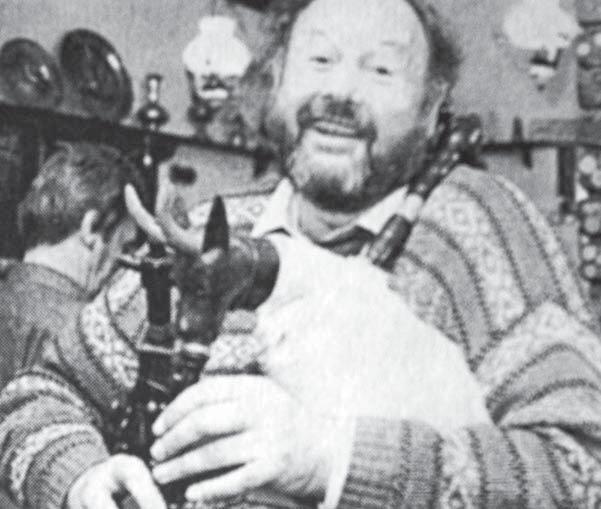
Born 11 June 1928, died 9 November 2015, aged 87
Born in Newcastle on 11 June 1928, Ian joined the Junior School in J1A in 1936, thereafter sailing through the upper echelons of his year. He was evacuated to Penrith and shared billets with others of his age. Like most of us he came home for the holidays and was one of the few, if not the only one, whose home was damaged in an air raid. He was an able cricketer, gaining his colours in 1945, and Wisden recalls that his batting average was three times greater than the next batsman, while he was second in the bowling averages.
He entered the Geography Sixth Form on our return from Penrith in 1944, but the following year he was offered the opportunity through a family connection to join the firm of Shanks Sanitary Ware in Barrhead, near Glasgow. It would mean giving up the thought of university and abandoning his home in Newcastle. He seized this chance and studied at night school. It paid off. He became works manager in1965, works director in 1968 and finally managing director in 1975.
He continued playing cricket for the Polloc Club winning the Western Union Championship with them. In later life his garden and bowling were great interests and he was President of his local bowling club. Only recently he guided the club through a difficult reconstruction with considerable skill and patience.
For many years he was absent from Old Novo events but he came with his wife, Margaret to the, ‘class of 1944 reunion’ in 2008 and the Penrith reunion of 2014 (see Issue 93) where his friends were delighted to see him.
He was a man with a great, but quiet sense of humour, integrity and determination and will be missed by many. He leaves a daughter, son and three grandchildren who were a great joy to him. His wife predeceased him.
By J Chris Emmerson (36-47)
John started at RGS in 1967, at a time of great change in the world, the Beatles, Carnaby Street, Vietnam, flower power and WD Haden (60-72) continuing to maintain discipline at a time of increasing liberalism. John was already a very accomplished musician and by the age of 12 was playing Schubert and Beethoven sonatas on the piano and knew all the Beethoven symphonies when almost all of his friends recognised were Lily the Pink, Jennifer Eccles and Dave Dee, Dozy, Beaky, Mick & Tich.
In the first year he acquired his nickname ‘Dic’ during a Maths lesson with form master JR Rowling (63-74). By the Removes we were affected deeply by the then revolutionary humour of Monty Python, Rowan & Martin’s Laugh In, Benny Hill and Frankie Howerd in Up Pompeii and often recited it by heart the following morning in Room 13.
John started to excel in Latin in R1 under MAG Griffiths (69-02 and 0506), but I recall he also did well in History under WA ‘Bill’ Feaver (65-71), Geography under ‘Dusty’ Rhodes (67-94), French under Mike Oswald (66-03) and Maths under Mr Liddell (50-78). John remembered having to do boxing for a term in the Removes when he was set against classmate David Webster (64-74).
In our Fourth year, Chemistry teacher Geoff Swinden (69-98) composed some music for our year group music ensemble with Robert Mines (69-74) on trumpet, Paul Robins (69-74) on clarinet, David Jackman (68-74) on French horn, GS on piano, John on bassoon and me on flute. John was a stalwart member of the school First Orchestra, for several years playing bassoon under the baton of
Jack Wolstenholme (48-75) and going on annual RGS orchestra trips with members of Central High to Bad Waldsee (1972) and in the Sixth Form to Konigswinter (1973 and 74). Perhaps uncharacteristically he attended Littondale camp with me for the whole of blackberry week in 1973 as a Sixth Form helper under Geoff Swinden (in his third year as a Chemistry teacher) and who we both recalled was inspirational about music, photography and the Yorkshire Dales.
In Sixth Form, John studied Classics with Distinction under Messrs ‘Strides’ Griffiths and Don Shipley (52-83) and in his ‘third year sixth’ was awarded an Exhibition to Wadham College, Oxford, where he changed to Part 2 English and graduated with a Double First.
John never married and led what some would describe as an alternative lifestyle. After periods working as a librarian at the Franciscan International Studies Centre in Canterbury and in the far east as an English teacher he returned to Oxford, which was his home. His funeral in Oxford was attended by classmates Anthony Wasserman (68-74), Michael Clark (67-74) and me. He is remembered by his sister Janette, brother Peter and the nephews and nieces he adored.
By Roland Tate (67-74)
Correction: In the last issue, Christine Watson (née McLennan, a former pupil of Central Newcastle High School) was searching for ONs who might be interested in the Sixth Form country dancing reunion and who will be turning 70 years of age next year. John Douglas (56-94), former Maths teacher wrote after publication that his wife, Jan was not involved in country dancing. It was, in fact, Joy Knowles (52-84) former Junior School teacher.
ONA Diary dates
The London Annual Dinner Friday 4 March 2016, The East India Club
The President of the ONA, Chris Rutter (92-02) invites you to join him at the London ONA Dinner.
Details can be found on the ONA website at http://ona.rgs.newcastle.sch.uk/news-and-events.aspx or by telephone on 0191 212 8909.
Deadline for reservations is Friday 19 February 201 . The price for the dinner is £59. Subsidised tickets for undergraduates are £39.
Secure a place by sending payment by cheque, made payable to Old Novocastrians Association, providing your name, address, email and years at school. We can also accept a bank transfer, please email ona@rgs.newcastle.sch.uk for further details.
Find our Facebook page at: Old Novocastrians Association



ONA Merchandise Special Offer
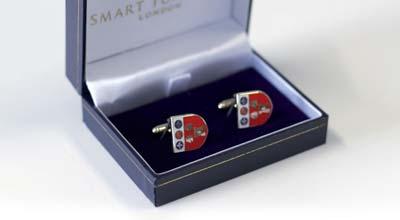
Tie and cufflinks £50 Bowtie and cufflinks £55
If you are coming to the London ONA Dinner, you can order a combination of a tie or bowtie and cufflinks for a special offer; only available to dinner attendees.


